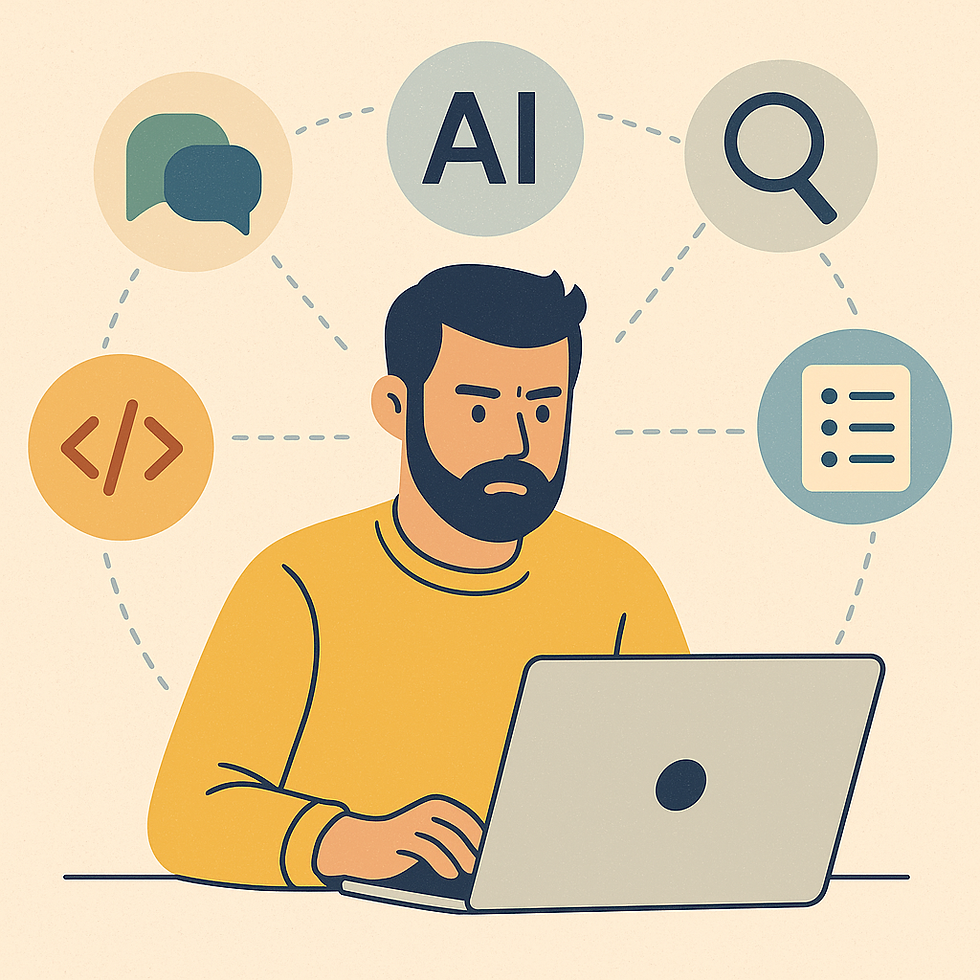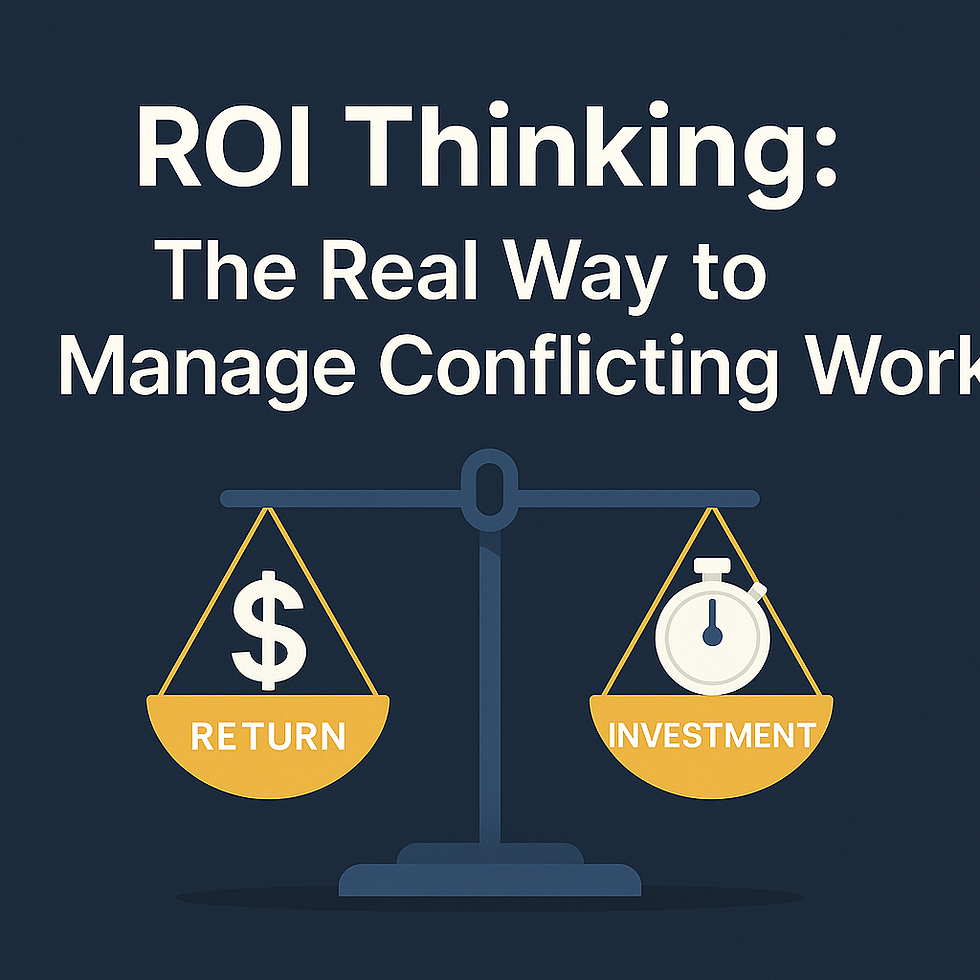Be an Action Manager, Not a Task Manager
- Admin
- Apr 27, 2025
- 3 min read

There’s a fine line between being organized and being trapped. And sometimes, that line is drawn by task management.
I’ve been down that road. Deep into it where my task management trapped me rather making me organized.
Going back there was a time when the productivity content hit me on Youtube— at least around two years back — and I got pulled right into it. Ali Abdaal’s channel was one of the biggest ones. There were others too — I can’t even recall all their names — but there was a moment when productivity channels, especially those run by medical students, were everywhere.
And I was hooked.
The Obsession Phase
I wasn’t just casually managing tasks. I became obsessed with them.
Every day, I would plan my tasks meticulously. Not just in spirit — I engineered it into my life.
I took a lot of ideas from these channels and started using OneNote seriously
Separate pages for daily tracking
Lists for what I planned, what I missed, what to roll over in each page
Analysis of how many tasks were pending and why
It wasn't just about planning. It was about feeding my growing dopamine cycle.
And here’s the scary part:
At some point, I was getting equal dopamine from managing the tasks on OneNote and doing my work - if not more!
When Task Management Becomes the Main Activity
It didn’t stop with tools.
I started gaining pride from being seen as a "great task manager." I even remember one of my friends exclaiming:
"Wow, you're a beautiful task manager when chancing upon a look at my OneNote organization"
And it gave me more dopamine. More false success.
But here’s the brutal truth, guys:
You’re not doing anything extraordinary by managing tasks well.
You’re just organizing your guilt more neatly.
The Turning Point: Discovering the True "Second Brain"
Out of everything I tried, one thing did stick: Notion.
I still use Notion today — and I use it properly. Not as a day-to-day task planner. Not as a dopamine tracker.
I use it as a true second brain.
I capture real observations:
Aha moments about work
Thoughts about why the team behaves a certain way
Reflections about technical decisions
Strategic ideas that might become relevant months later
That’s what second brains are for — long-term memory augmentation, not short-term dopamine hits.
And that’s what I learned the hard way.
Your Brain Is Already Brilliant at Short-Term Task Management
Don’t undermine your brain.
The human brain is incredible at handling short-term tracking:
You can remember two or three top priorities naturally.
It can let important things surface back up when you’re idle — gardening, walking, whatever.
You don’t need to write down every little thing you need to do today.
If it’s important enough, your brain will remind you automatically.
This is a feature, not a flaw. Leverage it.
The Ad Hoc Trap
Now, what about ad hoc tasks?
A sudden production bug
A follow-up email
A research spike that spirals into a mini-project
Do you need to track them?
No.
You act on the urgent ones naturally. The ones you can't finish — they will naturally roll over. If a true priority was missed, it’ll escalate — and that's where management structures kick in.
It’s your engineering manager’s job to protect the team from too much ad hoc chaos — not your job to become an unofficial task compliance officer.
Don’t carry a giant ad hoc tracker in your pocket trying to look like a hero. It’s wasted energy.
You’re Not Paid to Be a Clerk. You’re Paid to Move the Business.
Here’s another harsh truth:
The business doesn’t care if you perfectly documented 20 small tasks every day.
It cares whether you moved the needle.
It cares whether you took meaningful actions — actions that contributed to velocity, to customer value, to system health.
A list of polished small tasks that don’t matter? Zero impact.
A single high-value action that nobody noticed but changed something fundamental?Immense impact.
Learn to recognize the difference.
The Real Game: Action Management
If you take nothing else from this article, take this:
Be the action manager, not the task manager.
Act more. Act faster. Act on the right things.
And use Notion, OneNote, or whatever else — not to clutter your brain, but to preserve your true learnings for when you actually need them later.
Document ideas, strategies, insights. Not daily to-do lists.
Trust your brain. It’s smarter than you think.
The Takeaway
Productivity tools can help. Second brains can transform you. Task lists can give structure.
But none of them can substitute for the real work: Taking meaningful actions that matter.
Don’t get trapped managing your tasks. Manage your actions. Manage your impact.
That’s how you really win.



Comments